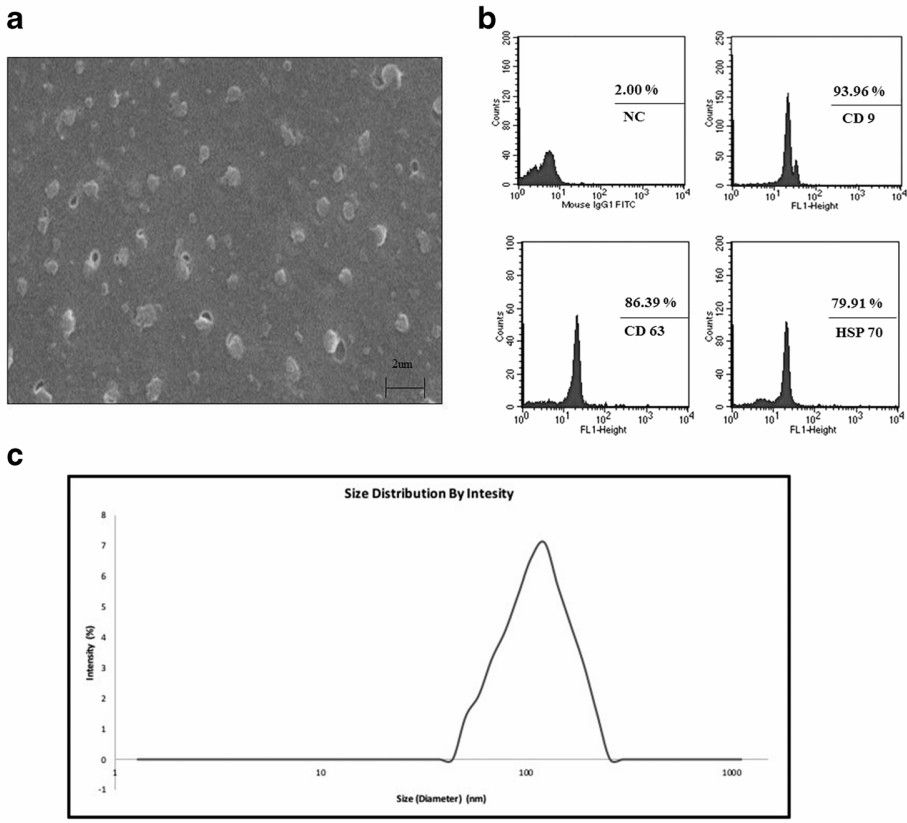Wheat-derived Exosome Research and Application
Wheat-derived exosomes exhibit similar exosome protein marker profiles and have been proven to exert pro-wound healing activity in skin wound healing models. Creative Biolabs can provide comprehensive production feasibility tests and research services around wheat-derived exosomes to expand functional understanding and mechanistic studies in their application areas.
Wheat Properties as Exosome Donor
Wheat can serve as an exosome donor, and its young grasses are an excellent source of a variety of nutrients, including chlorophyll, vitamins, minerals, amino acids, and fiber.
-
Wheatgrass is rich in Vitamin A and Vitamin E, which gives wheat antioxidant properties that help cells resist oxidative stress.
-
Wheat is rich in iron which aids the red blood cells in the oxygen transportation process.
-
Wheat carries magnesium to benefit the biochemical reactions in which the human skeleton is involved.
-
Wheat containing calcium is not only important for building and maintaining strong bones but also crucial for maintaining the normal function of the heart and muscles.
-
Wheat abounds in amino acids that make up the proteins necessary for building and repairing cells and tissues, including tyrosine, which promotes hair and skin growth and prevents cellular aging.
-
Wheat being rich in fiber stimulates intestinal motility and facilitates digestion.
Wheat-derived Exosomes Isolation
-
Take the grasses of wheat and wash them with distilled water and squeeze to make juice with a blender.
-
Centrifuge the wheatgrass juice sequentially at low and high speeds and discard the precipitate separately, reserving the wheat supernatant.
-
Mix the wheat supernatant with chemical precipitation buffer and incubate at 4 °C for at least 2h.
-
After high-speed centrifugation of the mixture, collect the wheat exosomes precipitate and resuspend with PBS.
-
Filter wheat exosomes and freeze them for storage or use for following assays.
 Fig. 1 Characterization of wheat-derived exosomes.1
Fig. 1 Characterization of wheat-derived exosomes.1
Research on Wheat-derived Exosomes
|
Research
|
Conclusion
|
|
Effect of wheat-derived exosomes on promoting cell proliferation.
|
Wheat-derived exosomes did not significantly impair cell viability in human dermal fibroblasts, human umbilical vein endothelial cells, and human immortalized epidermal cells, and were able to promote cell proliferation in a dose-dependent manner.
|
|
Cell migration activity of wheat-derived exosomes.
|
Scratch assays showed that wheat-derived exosomes were able to enhance the migratory activity of human dermal fibroblasts, human umbilical vein endothelial cells, and human immortalized epidermal cells, suggesting the pro-migratory ability of wheat-derived exosomes on wound healing.
|
|
The role of wheat-derived exosomes in promoting angiogenesis.
|
Angiogenesis assay revealed a remarkable increase in the number of branches in human umbilical vein endothelial cells treated with wheat-derived exosomes, thus favoring the formation of tubular structures and exerting a positive effect on wound healing.
|
|
Wheat-derived exosomes promote the expression of type I collagen.
|
Immunocytochemical analysis and RT-PCR assay showed that wheat-derived exosomes increased the expression level of type I collagen in human dermal fibroblasts.
|
|
Anti-apoptotic effects of wheat-derived exosomes.
|
Wheat exosomes were found to rescue apoptosis by Annexin V staining and cell cycle analysis.
|
 Fig. 2 Wheat exosomes increase the level of collagen type I.1
Fig. 2 Wheat exosomes increase the level of collagen type I.1
Wheat-derived exosomes have been shown to facilitate wound healing by promoting the expression of healing-related genes and promoting angiogenesis. Creative Biolabs has accumulated insights on exosomes of multiple cereal origins and can provide research services related to wheat-derived exosomes to assist in the development of further functions of wheat-derived exosomes. Please contact us to advance your wheat-derived exosome research.
Reference
-
Şahin, Fikrettin, et al. "In vitro wound healing activity of wheat-derived nanovesicles." Applied biochemistry and biotechnology 188 (2019): 381-394.
For Research Use Only. Cannot be used by patients.
Related Services:

 Fig. 1 Characterization of wheat-derived exosomes.1
Fig. 1 Characterization of wheat-derived exosomes.1
 Fig. 2 Wheat exosomes increase the level of collagen type I.1
Fig. 2 Wheat exosomes increase the level of collagen type I.1









